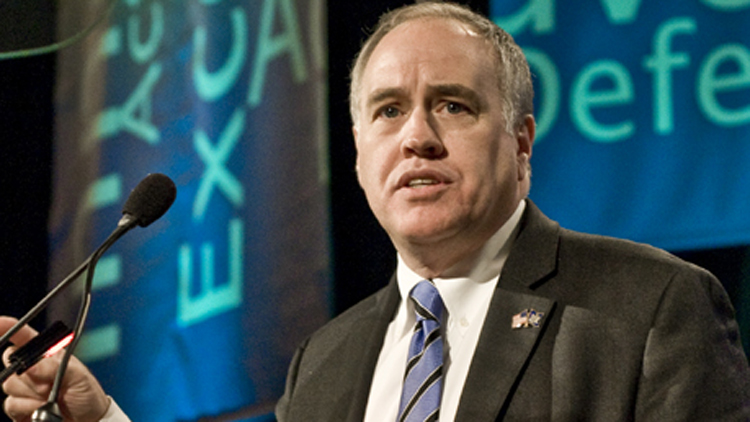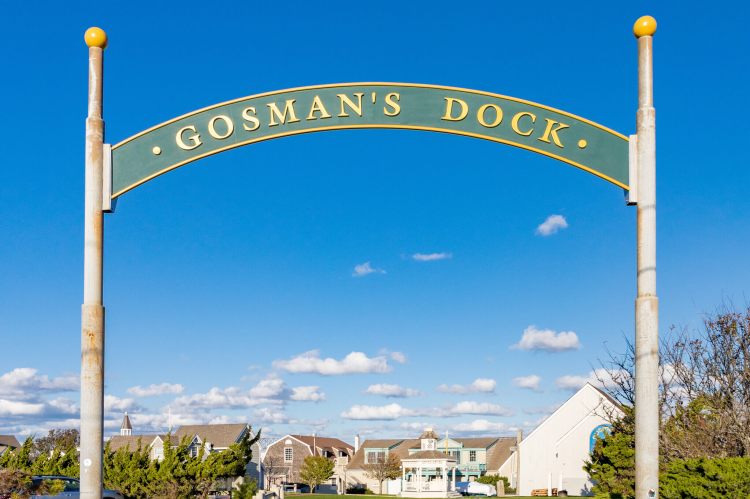New York State Comptroller Tom DiNapoli made waves this week when he opted out of a provision inserted at the last minute in the state’s new budget that would have given him what he has wanted since he entered public office: campaign finance reform.
Instead, the comptroller complained that the “one-year proposal affecting just a single race” was “disappointing on so many levels.” DiNapoli wanted the law to kick in by 2018, not months before the primary, let alone the November election. By contrast, Gov. Andrew Cuomo reportedly praised the new provision as “the largest single advancement” in campaign finance reform made in the last 30 years.
“We are surprised that the comptroller is opting out, as this was the comptroller’s bill to begin with,” Cuomo’s spokesman, Matt Wing, said in a statement. “If he has specific concerns, we will modify the proposal, unless, of course, he just doesn’t want to do public financing.”
Saying that he didn’t want to be the law’s “sacrificial lamb,” DiNapoli told The New York Times that the measure included in the new budget that went into effect March 31 was not his idea, nor did it match his bill the state Assembly had passed in 2011, before it subsequently died in the state Senate.
“All of our state elections are governed by campaign finance rules that are laughably weak and riddled with loopholes,” DiNapoli said in a statement. “This is not the comprehensive reform New Yorkers deserve.”
The provision, which the Times described as “a trial run for public campaign financing,” allowed six-to-one matches for individual gifts up to $175, demanded that candidates raise at least $200,000 from at least 2,000 donations of $10 to $75 from state residents in order to qualify for matching funds, and set the cap at $6,000 for individual donors. DiNapoli’s bill would have set the donor limits at $2,000 and lowered the threshold for matching funds to $150,000, requiring donations from 50 registered voters in at least 22 of New York’s congressional districts, according to a chart prepared by his office.
“I have previously drafted legislation to create a public financing system that uses the cmptroller’s race as a pilot program with adequate lead time, and with the intent of leading to a fully comprehensive system,” DiNapoli said. “This program does neither of those things. In the absence of a viable, workable public financing proposal, we are forced to continue under the current system.”
In his defense, DiNapoli cited New York Public Interest Group’s Blair Horner, another champion of public campaign financing, who has been quoted as saying this particular provision was “designed to fail.”
The comptroller also complained that the timing was unfair and the oversight inadequate.
“Completely changing the ground rules this late in the election season is neither fair, nor does it make sense, both on a regulatory level and for campaigns to create workable plans,” he said. “Our State Board of Elections is notorious for its inability to do its current job,” DiNapoli added. “Asking them to develop an entirely new regulatory structure and fairly implement it for the current election cycle is simply not workable.”
Seeing an opportunity to drive a wedge between two of the state’s top elected Democrats, New York Republican State Chairman Ed Cox said that Cuomo was punishing DiNapoli with this provision because he had dared to criticize the governor’s latest budget.
“After Comptroller DiNapoli did his job by pointing out that the governor’s sham-projected budget surplus is actually a $3.4-billion deficit, and that the governor used $700 million in one-shot budget gimmicks to balance the budget this year, Andrew Cuomo responded by subjecting Comptroller DiNapoli to public campaign finance,” said Cox in a statement.
No doubt DiNapoli didn’t see it quite that way but he did tell the Times that neither Cuomo nor his friends in the Legislature, where he served 20 years before becoming comptroller in 2007, bothered to tell him what was happening to “his pet project.”
DiNapoli, a long-time Nassau Democrat, found out about the provision after it was a fait accompli—a revelation that struck Nassau Democratic Chairman Jay Jacobs as a bit surprising.
“You would think that anybody who was going to be writing a bill that related to a campaign finance initiative for just the comptroller’s race…might have reached out and talked to the comptroller about it,” Jacobs told the Press.
In the meantime, despite some bloggers’ speculation to the contrary, DiNapoli is facing no Democratic primary opponent, according to Jacobs, and of the Republican side, says the Democratic Party chairman, “We have yet to see any billionaire step forward who wants this job.”
According to DiNapoli, he’s raised about $2.1 million in donations so far. If he had chosen to opt in, he told the Times, he would have to relinquish more than 70 percent of it.





























